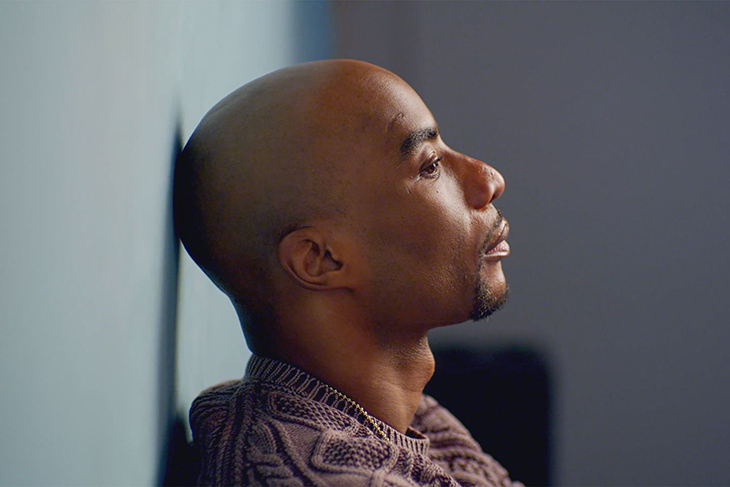
Charlamagne Tha God is a well-known radio personality, television host, and best-selling author who has been using his platform to raise awareness about mental health issues and break the stigma surrounding mental health. He has been vocal about his struggles with anxiety, depression, and PTSD, and has been using his platform to encourage others to seek help and not suffer in silence.
In his book, Shook One: Anxiety Playing Tricks On Me, Charlamagne details how his mental health journey began when he was in his 30s. His journey through therapy helped him unbundle and process several traumatic experiences when he was a young boy growing up in Moncks Corner, South Carolina. He witnessed the violence and drugs that ran rampant in his hometown, saw his father fall in and out of rehab, and was even a victim of sexual abuse. These experiences left a lasting impact on the young Black male and contributed to his struggles with mental health.
While the media mogul battled against all odds to forge a prized career as host of hip-hop’s most popular radio show – the nationally syndicated “Breakfast Club” – his early experiences did not come without a cost. He suffered from regular panic attacks and debilitating anxiety, which often landed him in the hospital, worried that he was having a heart attack.
“I was back at home, living with my mom at like 31, 32 years old with a two-year-old daughter and my now wife, who was back at home living with her parents. I remember having one of those panic attacks where you couldn’t tell me I was not about to die. And so I went to the doctor like I usually do, and the doctor told me I had an athlete’s heart. He said your heart is fine.” However, the doctor then added, “Do you deal with anxiety? It sounds like what you’re describing was an anxiety attack?”
Diagnosed with anxiety, Charlamagne, like many other Black males in America, struggled to find the right tools to address his worsening condition. It was only when he began voicing his troubles on the radio and having conversations with fellow peers that he discovered therapy.
“You can’t heal what you don’t reveal,” he says. “I would be very disingenuous if I had conversations with individuals about things that they were going through, and I wasn’t expressing things that I went through.
“So I had people like, you know, Pete Davidson, my little man, my little bro. But he was going to therapy since he was a kid. He would talk to me about therapy. I would hear Amanda Seales, you know, talk about therapy, you know? And it was just like, you know what? I’m going to start going to therapy. So it’s just like, that’s – all that just led me to start going, to do some – to start doing work on myself. And I have not looked back since,” recalled Charlamagne.
Today, the “Breakfast Club” co-host has taken the media and print industry by storm – with a popular podcast, a late-night television show, and two best-selling books. With an audience that includes millions of followers, Charlamagne is aware of the immense influence that his platform wields. He now aims to destigmatize mental awareness across Black communities in America and provide tools for people to heal decades of intergenerational trauma.
To further this effort, in 2021, Charlamagne began work on establishing his second brainchild – the Mental Wealth Alliance (MWA). The organization seeks to help destigmatize mental health in Black communities and help make treatment more accessible and effective for people in those communities.
The groundbreaking effort will raise $100 million over 5 years and will partner with Black-led organizations and experts to activate MWA’s three major pillars of life-changing impact:
- Train: prepare thousands of Black people to become research and clinical services providers in psychology, social work, and related fields through training and by establishing scholarship funds to provide training to increase the number of mental health care professionals from 4% to 14% to mirror the underserved population in need of culturally aligned mental health support.
- Teach: advocate for the implementation of Social and Emotional Learning (SEL) and Mental Health Literacy (MHL) in public K-12 education nationwide at federal, state, and local levels.
- Treat: support culturally competent organizations in providing free therapy to more than 10 million Black Americans within 5 years through the support of existing organizations and funding of the establishment of new organizations.
“We want to train the next generation of psychiatrists and therapists, we want to be able to provide them with scholarships and money to where they can get their certification, especially Black and brown people because I feel like we need more…culturally competent psychiatrists and therapists in that field,” he says.
Over the years, Charlamagne has witnessed thousands of Black Americans, including his own father, silently suffering from mental illnesses without any sign of respite. The media mogul believes that this is due to the mental health stigma that is prevalent amongst marginalized communities, where sub-standard health care is a norm.
“My father was going to a therapist two or three times a week,” he said. “He was dealing with depression back in the day and wanted to kill himself; he was on 10-12 medications; he was getting a check for mental disability [and] who knew? He never told [anybody].”
During an interview with Forbes Magazine, the radio host said, “I hope getting these brothers and sisters to go to therapy makes them realize the things that they’re going through, whether it’s panic attacks, depression, anxiety, or PTSD, these are normal things.”


